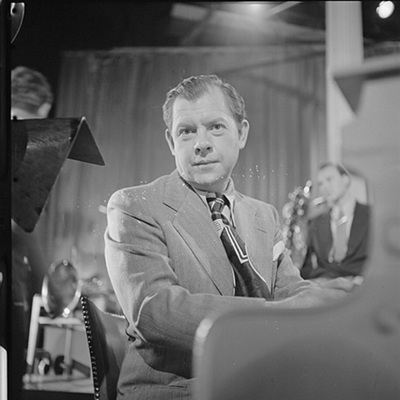.
.
“Firstborn” was a short-listed entry in our recently concluded 68th Short Fiction Contest, and is published with the consent of the author.
.
.
___
.
.
cottonbrostudio/via Pexels

.
Firstborn
by Brian Greene
.
…..It’s somewhat surprising that Claudia ever came into the shop where I worked. Of the two main record stores in the mid-sized college city, ours was the decidedly inferior place. The other guys carried small label and import titles, and they were known to employ musically knowledgeable tastemakers. We stocked mostly standard new releases and back catalog titles, and while we got the occasional connoisseur as a customer, the bulk of our clientele bought Billboard Top 100 fare. Claudia was an intelligent woman who was also a deep crate digger who could have schooled the other store’s clerks with her extensive grasp of current and dated pop, rock, soul, funk, jazz, folk, electronica, etc. She fit the mold of our competitor’s customer type more than she did ours. But then those employees carried on like they were celebrities who might deign to assist you if they thought you were worthy of their attention, while we were prepared to be friendly to anyone who walked in our door. Claudia, who didn’t suffer fools gladly, probably found their airs to be ridiculous and didn’t want to be bothered by them.
…..Claudia must have been in her early-to-mid 30s then (making her roughly 10 years older than me). She stood around 5’3 and was thin to the point of being describable as bony. She wore her curly dark hair cut short and her skin tone made it appear that she could have been of Jamaican descent. She spoke in a way that made her seem like an Ivy League professor, but when she smiled or laughed, she looked like a mischievous young girl having some devilish fun.
…..She came into the store twice a month or so and usually spent most of her time while there talking to me. We generally discussed music. I’d been collecting records since I was around six years old, but Claudia always knew about artists and titles that were new to me. She told me that, apart from her visits to our shop, she rarely left her apartment outside of her trips to and from the archaeological library where she worked. One time, she mentioned to me that she’d recently skipped out on the funeral of a co-worker.
…..“I just couldn’t be out that day.”
…..She made it sound like she’d narrowly avoided some highly unpleasant experience by remaining inside her home while others paid their respects to the deceased person.
…..Claudia recorded two of her favorite albums onto a tape for me. One side of the cassette contained The Firstborn is Dead by Nick Cave and the Bad Seeds and the other captured Ry Cooder’s soundtrack to the Paris, Texas movie. I was in my senior year of college then, and I lived alone in an efficiency apartment. I often listened to Claudia’s tape through my boombox when I was at home. The Bad Seeds album made me feel mean and dirty in a cool way. I put on Cooder’s plaintive music when I felt melancholy. While that soundtrack spun, I usually thought about my niece and nephew – then aged eight and five, respectively- who were 100 miles away. Their mother, my sister Marie, was a mentally ill single mom who was often in and out of psychiatric facilities. Their dad wasn’t in the picture. My mother always took the kids into her home when Marie was in the hospital, and she loved her grandkids, but she’d raised her children and didn’t have the energy to be an attentive caregiver to them. I’d hear Cooder’s sad-sounding slide guitar playing and think about how my niece and nephew must have felt unwanted and unprotected.
…..I’d known Claudia for around a year when I learned something about her that I found to be shocking. A co-worker informed me that Jason – the leader of a pack of teenage skate punks who routinely terrorized us in the store – was Claudia’s son. Jason and his cronies rode their skateboards inside the shop, stole tapes from us, made fun of whatever music we played over the in-store system, left their spent cigarettes butts on our front stoop, etc. I couldn’t believe Claudia was his mom. He was so brash, and she was so refined. She’d given me the impression of being so resolutely detached from other people that it was difficult for me to imagine her having been involved with whoever was Jason’s dad.
…..After I was let in on this intel, the next time I saw Jason in the store, I approached him with a sly smile on my face.
…..“I know who your mom is.”
…..I guess I said that to him as if to threaten telling on him if he kept acting up in the shop. But rather than react to my statement by looking like he felt exposed, he grimaced and held up his skateboard in a way that made it appear like he was considering striking me with it.
…..“Don’t ever say that shit to me again. That woman means nothing to me.”
…..A few days after I had that encounter with Jason, I ran into his mother on the street. It was the first time I’d seen Claudia outside the record shop. It was late morning on a Sunday, and I’d been to Safeway. As I was on foot, I told myself not to get too many groceries lest I wanted to force myself into a difficult eight-block walk home. But I went against my own advice and was stuck with lugging two heavy bags filled with bulky goods. I had to stop every block or so and set the sacks down, to give my arms a rest. I was standing on a corner, my grocery bags on the pavement in front of me, when Claudia materialized by my side.
…..“I was reading the New York Times in the coffee shop across the street, and I saw you through the window. You looked like you needed help. Can I carry one of the bags for you?”
…..Inside my apartment, I welcomed Claudia to have a seat in my sparsely furnished main living area. I made us orange pekoe tea while putting away my groceries. I put the Bad Seeds tape on in the boombox, handed Claudia her mug of tea and sat down on the floor opposite her while holding mine. It was a chilly January morning and the baseboard heating in my unit didn’t do much good. It felt good to grip the hot cup.
…..As “Tupelo” played, I started to say something to Claudia about my discovery of her relation to Jason. But she shushed me, indicating that there should be no talking during the music. It felt awkward to have us not speaking to each other over the 40-plus minutes of the album’s duration. But I figured I owed her after she’d helped me with my bags, so I acceded to her wishes. We both drank two mugs of the tea.
…..When the boombox finally went quiet, Claudia made a face that said I could go ahead with what I’d wanted to say to her.
…..“So, I just learned that Jason is your son. I had no idea.”
…..I didn’t know how I expected her to react. But her response was one I could not have anticipated.
…..“He’s an angry kid. I hope he finds something.”
…..I felt a chill through my insides, and it wasn’t from the winter coldness. She said that like she was a schoolteacher, and Jason was a troublemaking student she hadn’t been able to reach. Marie often talked about her kids in that same way, like they were the world’s problem, not hers.
…..Claudia eyed my boombox. It seemed like the discussion was over in her mind, and she thought I should play the Cooder album. I imagined sitting with her in silence except for the music, feeling how I was feeling. I feigned a yawn and stretched my arms out.
…..“I suspect it’s time for me to go.”
…..The following Thursday evening, I worked a closing shift at the shop. At around 6:30, one of my other favorite regular customers came in. Her name was Wanda, and she was an art student at the university. Wanda wasn’t pretty in a traditional way, but I found her personality to be attractive. She came off like she was onto some good, unique things and she’d let you in on them if she liked you.
…..“Do you guys have The Minutemen’s Double Nickels on the Dime?”
…..She had paint all over her hands. Of course we didn’t have that album in stock.
…..“I could special order it for you.”
…..“Thanks, but I really need to hear it right now. I was working in my studio and some of those songs got in my head. I can’t finish my painting until I hear them.”
…..I had the album at home. I told Wanda if she could wait for 15 or 20 minutes, I’d bike to my apartment and get it, then bring it back and loan it to her. She said I didn’t need to go to the trouble, but I said I understood the urgency she felt about having to hear the songs right then and there and was happy to help her get her fix (and I didn’t want the snobs at the other store to get her business). Our shop was never busy, so my co-worker on that shift didn’t care that I was leaving the floor for a little.
…..When I got back with the record, Wanda was sitting out on the front stoop. I peeked inside the store and saw that my co-worker had no customers and was reading the local weekly at the counter. I kicked Jason’s and his friends’ spent cigarette butts off the open part of the stoop and sat next to Wanda. I can’t remember what she and I talked about while we sat out there. But I know we laughed a lot. We were laughing when I looked up and saw Claudia turn the corner on foot, heading in the direction of the shop. When she and I made eye contact, in my mind I heard her saying what she said to me about Jason, and how she said it. I quickly looked away from her and peered back into the store for a few moments. When I glanced back out on the street, Claudia had vanished.
.
.
___
.
.

Brian Greene writes short fiction, as well as features on books, music, film, and fine arts. His work has appeared in approximately 50 publications. Brian lives in Durham, North Carolina and he’s on Twitter/X @greenes_circles.
.
___
.
.
Click here to help support the continuing publication of Jerry Jazz Musician, and to keep it ad and commercial-free (thank you!)
.
“Saharan Blues on the Seine,” Aishatu Ado’s winning story in the 68th Jerry Jazz Musician Short Fiction Contest
Click here to read more short fiction published on Jerry Jazz Musician
Click here to read The Sunday Poem
Click here for information about how to submit your poetry or short fiction
Click here for details about the upcoming 69th Jerry Jazz Musician Short Fiction Contest
Click here to subscribe to the Jerry Jazz Musician quarterly newsletter (it’s free)
.
.
.
___
.
.
Jerry Jazz Musician…human produced since 1999
.
.















































